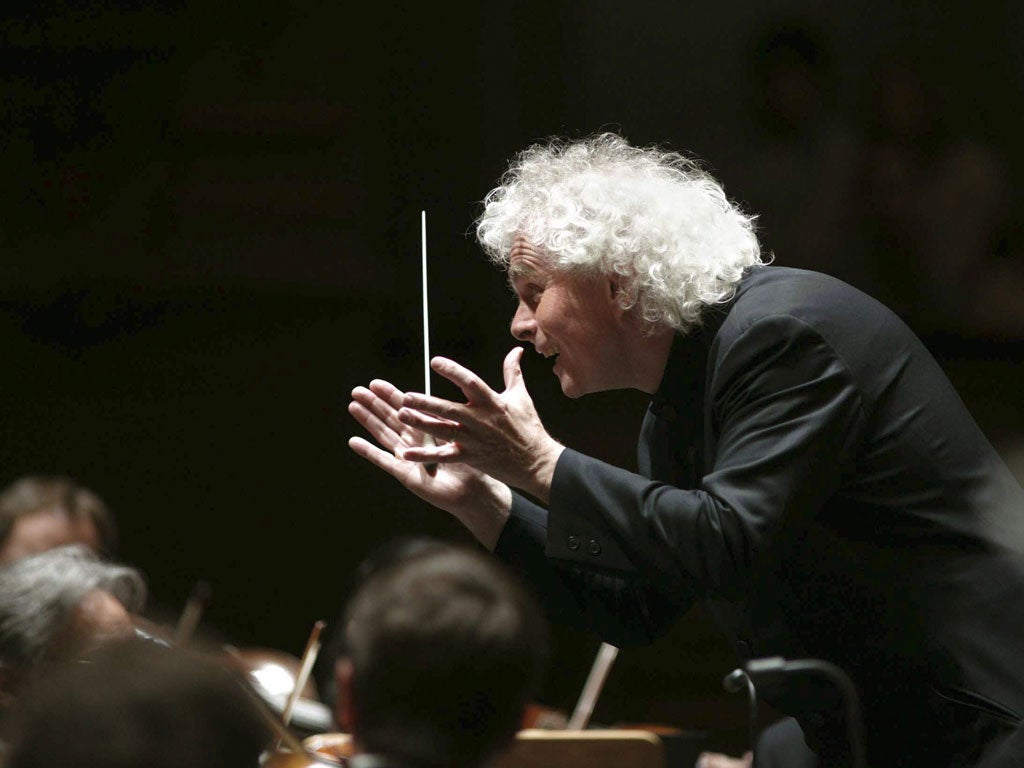Arts review of 2011 - Classical: Just when you think you've heard it all...
Yes, concert halls and opera houses worked their socks off, but there was thrilling music in a car park and off the beaten track

Your support helps us to tell the story
From reproductive rights to climate change to Big Tech, The Independent is on the ground when the story is developing. Whether it's investigating the financials of Elon Musk's pro-Trump PAC or producing our latest documentary, 'The A Word', which shines a light on the American women fighting for reproductive rights, we know how important it is to parse out the facts from the messaging.
At such a critical moment in US history, we need reporters on the ground. Your donation allows us to keep sending journalists to speak to both sides of the story.
The Independent is trusted by Americans across the entire political spectrum. And unlike many other quality news outlets, we choose not to lock Americans out of our reporting and analysis with paywalls. We believe quality journalism should be available to everyone, paid for by those who can afford it.
Your support makes all the difference.High notes
The Berlin Philharmonic's London residency with Simon Rattle made a Mahler-saturated audience gasp. "No music on earth can compare with ours!" sang Christine Schäfer in the Fourth Symphony.
She was right. Rattle's Mahler aside, 2011's revelations were modestly proportioned: the valedictory delirium of the Belcea Quartet and Valentin Erben's late-night Schubert, the muted ecstasy of the Arcanto Quartet's Berg, the mill-pond stillness of Christian Gerhaher and Gerold Huber's Des Fischers Liebesglück, the chemical pop of Lily Francis's performance of Sciarrino's Notturne brillante, the baleful isolation of Robert Holl and András Schiff's Winterreise.
Esa-Pekka Salonen and the Philharmonia blazed through Duke Bluebeard's Castle and Mark Elder and the Hallé glowed in Die Walküre in concert. Core concertos were new-minted – Mitsuko Uchida's Schumann, Ilya Gringolts's Beethoven, Viviane Hagner's Brahms. Vassily Petrenko in Liverpool, Andris Nelsons in Birmingham and Kirill Karabits with the Bournemouth Symphony Orchestra developed yet more distinctive personalities. In Peckham, south London, Non-Classical brought The Rite of Spring to a multi-storey car park.
Low notes
Christopher Alden's faultlessly executed but hideously misconceived A Midsummer Night's Dream, Terry Gilliam's dancing-Nazis Faust, and Mike Figgis's inert Lucrezia Borgia, all at ENO, Robert Carsen's puerile Rinaldo for Glyndebourne, Havergal Brian's spendthrift Gothic Symphony at the Proms, and Mieczyslaw Weinberg's morally ambitious but musically weak The Portrait (Opera North) and The Passenger (ENO)
Heroes and villains
At the Royal Opera house, Mark Anthony Turnage's Anna Nicole stood out for chutzpah and vacuity, Tarik O'Regan's Heart of Darkness for old school craftsmanship. There were stunning performances from Josephine Barstow (Queen of Spades, Opera North), Eva-Maria Westbroek (Anna Nicole and Il tabarro, ROH), Alice Coote (Cendrillon, ROH), Gerald Finley(Die Meistersinger, Glyndebourne) and Alan Oke (Anna Nicole, Heart of Darkness and Opera North's From the House of the Dead).
While Garsington Opera shivered in the sub-zero elegance of its new glass-sided home, ENO hot-housed Monteverdi's Ulysses in a perspex cube and bathed Rameau's Castor and Pollux in columns of light. In Blackheath Halls, a hyperlocal Eugene Onegin had more spirit and soul than Deborah Warner's New York-bound ENO co-production. Scottish Opera and English Touring Opera emphasised Handel's Britishness in bittersweet Second World War stagings of Orlando and Xerxes. Rigoletto acquired an American twang as Grange Park Opera drew on LA Confidential and Opera Holland Park looked to The Sopranos. The conducting in both shows was first-rate (Toby Purser and Stuart Stratford), the direction (Daniel Slater and Lindsay Posner) far superior to that in Placido Domingo's park-and-bark gala triptych.
Glyndebourne's touring Don Pasquale had more sizzle than its summer offerings. Covent Garden blew its Autumn budget on Richard Jones's handsome, well-cast Il trittico. I laughed harder at ETO's Gianni Schicchi, but listened to Antonio Pappano with awe. No conductor gets Puccini like he does – the tenderness, the sardonicism, the subversiveness. My new best friends? Mascagni's L'Amico Fritz, staged as a Borscht Belt romcom for Holland Park by Annilese Miskimmon, and Rimsky Korsakov's The Tsar's Bride (ROH), set in a boom-bust dystopia of high-rise developments and low-rent hit-men by Paul Curran.
Old faces
Claudio Abbado (born 1933), Colin Davis (1927) and Bernard Haitink (1929) brought unparalleled clarity and depth of feeling to Bruckner, Tchaikovsky and Brahms in their performances with the Lucerne Festival Orchestra, Gustav Mahler Jugendorchester and Chamber Orchestra of Europe respectively, while Pierre Boulez (born 1925) enjoyed a standing ovation for Pli selon pli.
New faces
Kate Valentine was a fierce and vulnerable Tatiana in the Blackheath Eugene Onegin. Conductor Jessica Cottis nailed the seediness and suavity of Weill's Seven Deadly Sins for Scottish Opera. The youngest and feistiest of Britain's regional companies, Northern Ireland Opera, launched its career with a site-specific Tosca in Derry and a gleefully violent Hansel and Gretel in Belfast's Grand Opera House.
Join our commenting forum
Join thought-provoking conversations, follow other Independent readers and see their replies
Comments